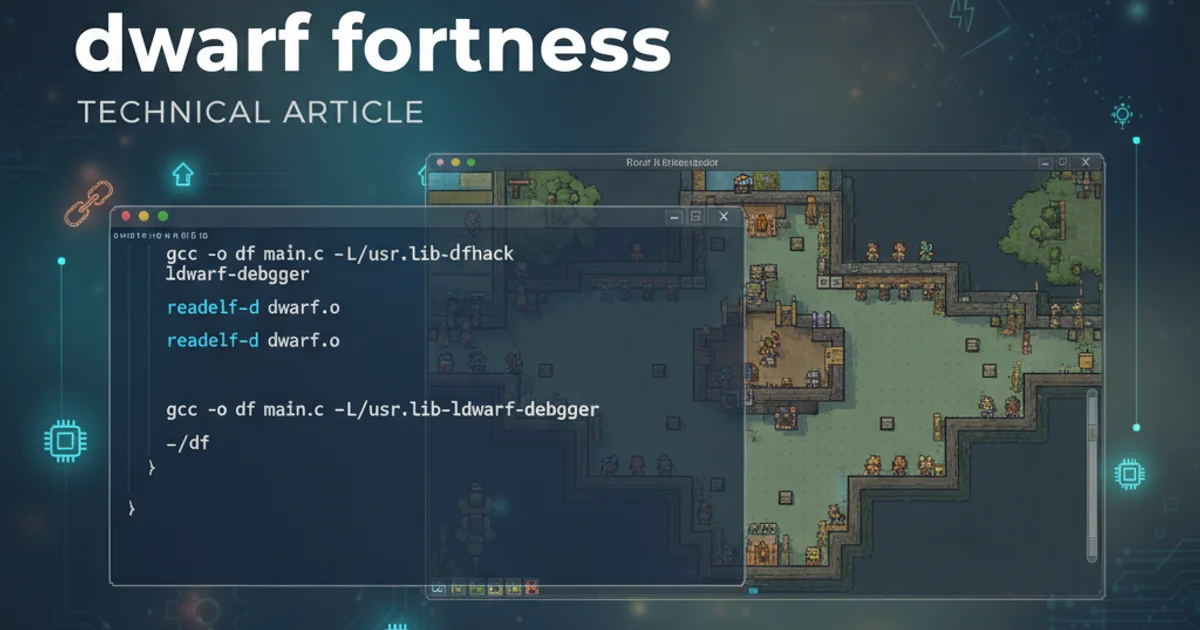link libraries to run dwarf fortress
Categories:
Linking Libraries for Dwarf Fortress on Linux

A comprehensive guide to resolving shared library issues when running Dwarf Fortress on Linux, ensuring a smooth gaming experience.
Dwarf Fortress, a notoriously complex and rewarding simulation game, often requires specific shared libraries to run correctly on Linux distributions. Users frequently encounter errors related to missing .so files, preventing the game from launching. This article will guide you through identifying, locating, and linking these necessary libraries, focusing on common issues and solutions.
Understanding Shared Library Errors
When a program like Dwarf Fortress starts, it looks for dynamic-link libraries (shared libraries, typically with a .so extension) that contain code it needs to execute. If these libraries are not found in the system's standard paths or are incompatible, the program will fail to launch, often with an error message indicating a missing .so file. This is a common occurrence with games or applications that are not specifically packaged for your Linux distribution or rely on older library versions.
flowchart TD
A[Start Dwarf Fortress] --> B{Program Loads}
B --> C{Check for Shared Libraries}
C -->|Libraries Found| D[Game Launches Successfully]
C -->|Libraries Missing/Incompatible| E[Error: Missing .so file]
E --> F[User Intervenes: Locate & Link Libraries]
F --> G[Retry Dwarf Fortress Launch]
G -->|Success| D
G -->|Failure| EDwarf Fortress Launch Process and Library Dependency Flow
Identifying Missing Libraries with ldd
The first step in resolving library issues is to identify exactly which libraries are missing or cannot be found. The ldd command (List Dynamic Dependencies) is an invaluable tool for this. It prints the shared libraries required by each program or shared library specified on the command line. When a library is missing, ldd will typically report 'not found'.
ldd /path/to/dwarffortress/df
# Example output for a missing library:
# libSDL_image-1.2.so.0 => not found
ldd on the actual executable file (e.g., df or dwarffortress), not the game's launcher script, to get accurate dependency information.Locating and Linking Libraries
Once you know which libraries are missing, you have a few options. The most common approach is to install the development packages for those libraries via your distribution's package manager. If that doesn't work, or if the game requires an older version, you might need to manually place the libraries or adjust the LD_LIBRARY_PATH environment variable.
1. Install Development Packages
For most common libraries (like SDL, OpenGL, etc.), your distribution will have a package. Search for packages ending in -dev or -devel (e.g., libsdl2-dev on Debian/Ubuntu, SDL2-devel on Fedora). These often include the necessary .so files.
2. Manually Place Libraries
If installing packages doesn't resolve the issue, or if you need a specific version, you can often download the .so files directly. Place them in the same directory as the Dwarf Fortress executable. Linux's dynamic linker will often look in the executable's directory first.
3. Use LD_LIBRARY_PATH
The LD_LIBRARY_PATH environment variable tells the dynamic linker where to look for shared libraries before checking standard system paths. This is useful if you have libraries in a non-standard location or want to use a specific version without installing it system-wide. This is a temporary solution for a single session or script.
export LD_LIBRARY_PATH=/path/to/dwarffortress/libs:$LD_LIBRARY_PATH
./df
LD_LIBRARY_PATH globally can sometimes lead to system instability or unexpected behavior for other applications. It's best to set it only for the specific session or script that launches Dwarf Fortress.